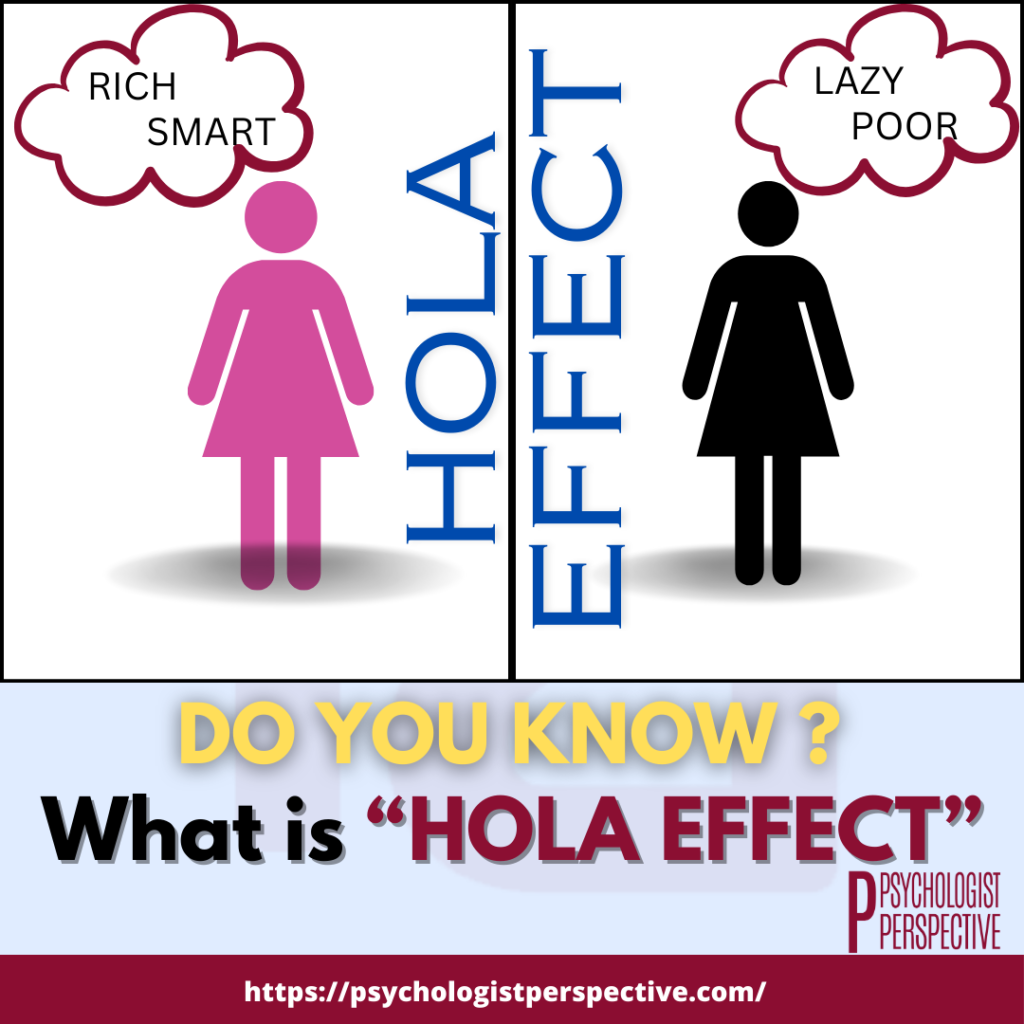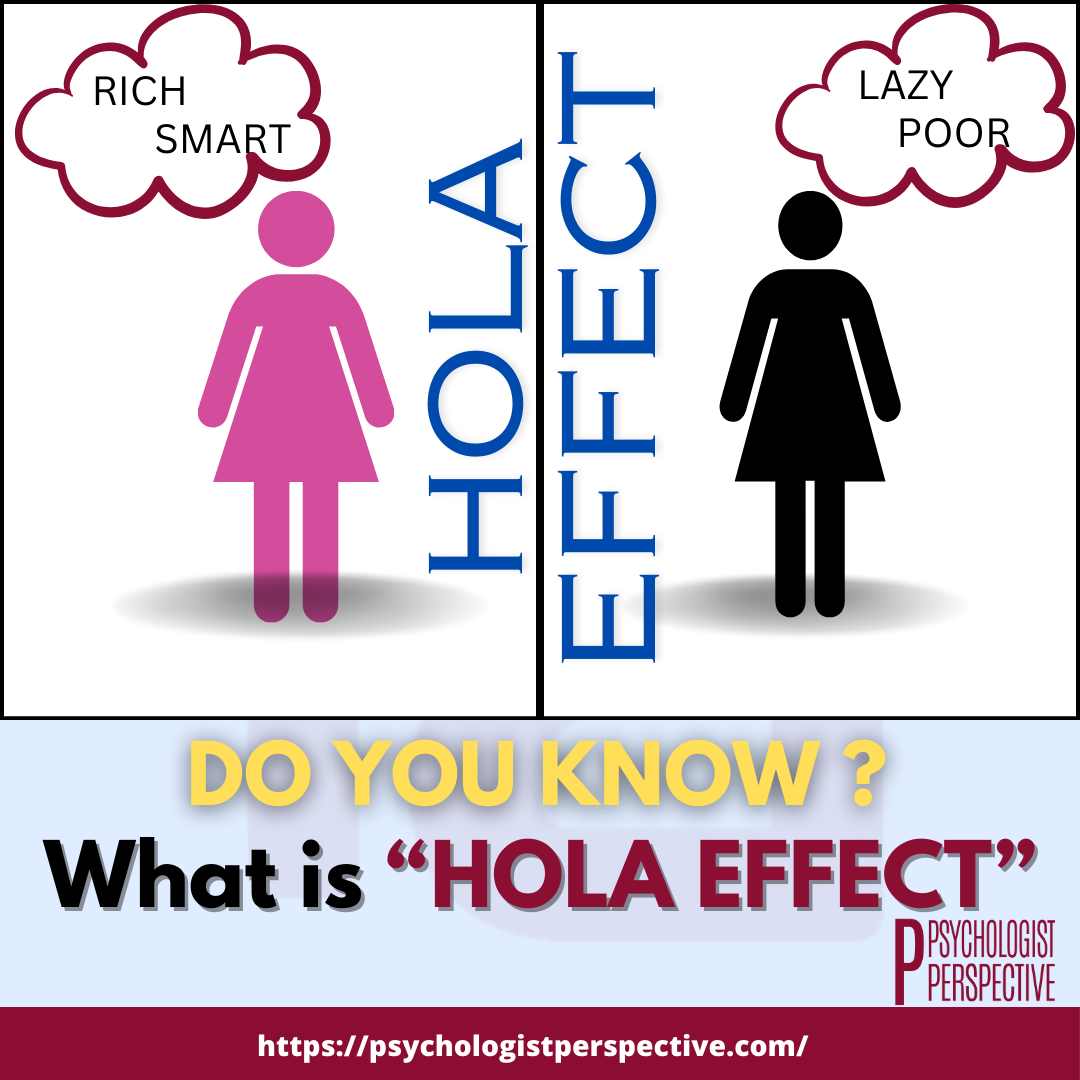HOLA EFFECT
The term “Halo effect” was first coined by psychologist Edward Thorndike in the early 20th century. He noticed that when military officers rated their soldiers on various attributes, those who were rated high on one characteristic tended to be rated high on other unrelated characteristics as well.
This effect has since been studied extensively in psychology and is recognized as a common cognitive bias that can lead to inaccurate judgments and perceptions.

Understanding the halo effect proves crucial as it exposes how our perceptions can become skewed by superficial or initial impressions, thereby influencing biased decision-making and potentially resulting in unfair evaluations of others.
Recognizing this bias can help us strive for more objective and comprehensive assessments of people based on a broader range of qualities and behaviors
The “halo effect” is a cognitive bias or perceptual distortion that affects how we perceive and judge others.
It occurs when our overall impression of a person (or one trait of that person) influences our thoughts and feelings about their other traits. Essentially, it’s the tendency to let one positive or negative trait overshadow our judgment of other characteristics of that individual.
Here’s how the halo effect typically works:
1.Initial Impression:
When we encounter someone, we might notice a particular positive trait about them. This could be physical attractiveness, intelligence, charisma, or any other appealing quality.
2.Generalization:
Once we form a positive impression based on this one trait, we tend to extend that positivity to other traits of the person. For example, if someone is physically attractive, we might automatically assume they are also friendly, competent, and trustworthy.
3.Influence on Judgment:
The halo effect can influence our overall judgment of a person. If we perceive someone positively due to one trait, we might overlook or downplay negative traits they possess. Conversely, if we have a negative initial impression, it can cloud our judgment of their other qualities.
4.Impact on Decisions:
The halo effect can impact various aspects of our interactions and decisions, such as hiring practices, performance evaluations, or forming relationships.
For instance:
A job interviewer might be biased towards a candidate who is attractive, assuming they are also more competent and capable.
The “halo effect” can be observed in various real-life scenarios. Here’s an example to illustrate how it works:
Imagine you are in a job interview and the candidate walks into the room. The first thing you notice is that they are exceptionally well-dressed and have a confident demeanor. These initial impressions create a positive halo effect.
Initial Positive Trait: The candidate’s professional appearance and confident demeanor are the initial positive traits that catch your attention.
Generalization to Other Traits: Due to this positive first impression, you start assuming other positive qualities about the candidate. You might automatically think that they are competent, intelligent, and capable because of their appearance and confidence.
Influence on Interview: Throughout the interview, you might interpret their responses more favorably. Even if their answers are average or slightly unclear, you might give them the benefit of the doubt because of the halo effect.
Final Assessment: At the end of the interview, you rate the candidate highly overall, believing that they would be a strong performer in the role. The positive halo created by their appearance and demeanor influenced your judgment of their professional abilities.
In this example, the halo effect demonstrates how initial positive impressions can lead to biased perceptions and evaluations. The candidate’s attire and demeanor acted as a “halo” that influenced your overall perception of their competence and suitability for the job, potentially overshadowing other important factors that should have been considered objectively during the interview process.
It’s important to be aware of the halo effect in situations like job interviews, performance evaluations, or forming personal judgments, as it can lead to biased decision-making and overlooking critical aspects that are unrelated to the initial positive impression.


